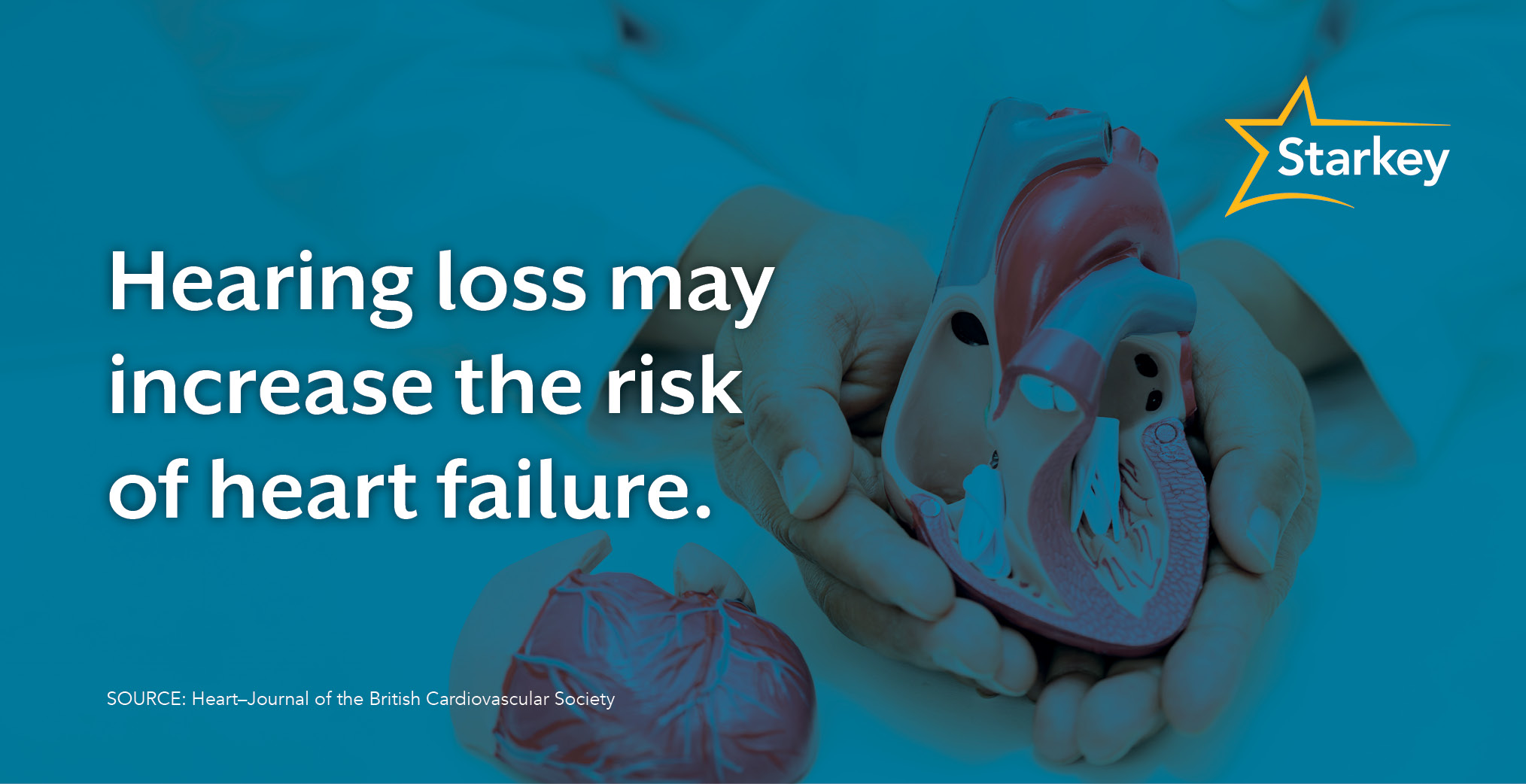It is now widely known that hearing loss can affect overall health. In other words, if we choose not to treat our hearing loss, we may be putting ourselves at risk for health issues that span from problematic to pretty serious.
For example, we know that communication hardships associated with hearing loss can result in social withdrawal—which, unfortunately, can impact mental health and increase the risk of cognitive decline, according to research.
But did you also know that hearing loss is linked to physical health disorders like cardiovascular disease? Today’s new hearing fact adds a related condition to this category, with recent research revealing that hearing loss—along with associated factors social isolation and mental distress—may be linked to a higher risk of heart failure.
Let’s take a closer look at the study behind today’s hearing fact and how it might guide us to be proactive about our hearing health as we age.

Study examined link between hearing ability and heart failure risk
Researchers from the UK investigated the relationship between hearing capability and the risk of incident heart failure. During the study, which centered around 164,431 participants, they observed:
- Incident heart failure (through hospital admissions and death records)
- Speech-in-noise hearing ability
- Speech reception threshold (or the quietest level at which people can identify 50% of spoken words)
- The role of social isolation, psychological distress, and neuroticism
The results:
A “median follow-up” of 11.7 years uncovered that 4,449 of the participants developed incident heart failure.
It also found that:
- Increased speech reception threshold levels correlated with a higher risk of heart failure
- Compared to participants with normal hearing, those with hearing loss had increased heart failure risks
- Psychological distress played a "notable mediating role" in the correlation between hearing loss and increased heart failure risk
These findings emphasize that hearing loss may increase our risk of heart failure. Additionally, the mental components linked to hearing issues (particularly psychological distress from social isolation) may also play a strong role in mediating the association between hearing loss and heart failure likelihood.
With these results in mind, the researchers concluded that:
“Hearing loss may serve as a potential marker for heart failure risk, highlighting the importance of integrating hearing health assessments into cardiovascular risk evaluation frameworks.”

Hearing aids may reduce the impact of social isolation on overall health
So, we now understand that leaving hearing loss untreated can cause social isolation, which may not only decrease our overall life happiness but also increase the risk of serious health issues.
By treating our hearing loss through hearing aids, however, we can lower our risk of social isolation and its impact on our overall health.
After all, better hearing can help us:
Maintain relationships
Improved communication with the help of hearing aids allows us to stay connected with important people in our lives such as family, friends, and caregivers, plus maintain a strong support network we can count on.
Stay active
Better hearing can boost our confidence and capability to sustain a full, active lifestyle. This may include taking courses, hiking with friends, volunteering, and more: Hearing everything from instructions to outdoor sounds to conversations can contribute to a healthier, more fulfilling quality of life.
Socialize
Hearing our best can help make socializing more enjoyable—so we’re much more likely to do it. Having the self-assurance to start conversations, schedule plans with others, and attend gatherings (busy restaurants included) means we can experience the joy of never having to miss another moment.
Let’s face it, we’ve got a lot of living to do and a lot of enjoyment to be had with the people we care about. So, when it comes to healthy aging, why not be proactive? Get your hearing evaluated and treat any hearing loss you may have.
One simple visit to a hearing care professional can go a long way towards maintaining your best quality of life into the future.

Make an appointment with a hearing care professional today
Simply type your zip code in here and you’ll find a list of local hearing care professionals who can evaluate your hearing and consult with you about your options.
